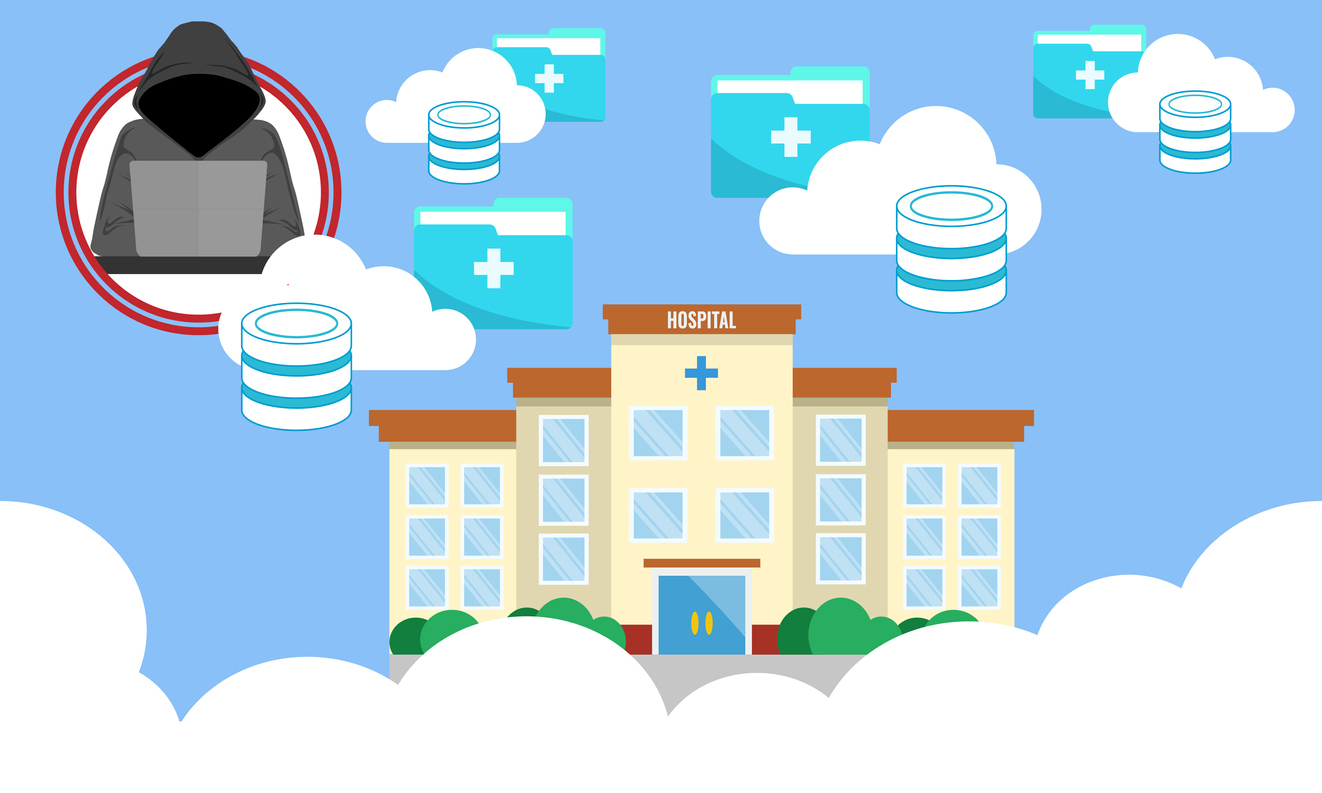Access to Healthcare within our lives is imperative to keep you healthy and manage any healthcare issues you may have. You feel comfortable knowing that healthcare professionals are there to ensure your well-being and provide expert care whenever needed. From routine check-ups to emergency interventions, having access to quality healthcare is not just a convenience but a fundamental necessity for maintaining a healthy and fulfilling life.
However, amidst this assurance, one critical concern looms large: the security of your data.
Here are a few facts:
- 30% of all large data breaches occur in hospitals
- 51% of healthcare organizations reported an increase in data breaches since 2019
- There was a 75.6% chance of a breach of at least 5 million records in 2023.
As a reader, you may have grown numb or indifferent to the constant cyber attack articles you may see daily. However, the cyber attacks occurring within the healthcare system have become quite serious, not only affecting these organizations but also have begun to impact patients.
The ongoing issues of data breaches have continued to progress, affecting some of the top organizations in the healthcare system. In fact, in February, Chicago’s Lurie Children's Hospital experienced a network outage where their computers, internet, and phones were taken offline because of a cyberattack. The outage has also forced many patients to reschedule their appointments.
Additionally, four days ago, New York City’s Montefiore Medical Center had to pay attackers over $4.75 million after a patient data breach. This was allegedly due to the center failing to implement security measures to prevent malicious actors from stealing patients’ information. (Bloomberglaw)
Why are Healthcare systems and hospitals a big target?
Studies prove that healthcare organizations are most at risk, where over 88% of organizations have stated that they were targeted in a cyber attack within the past year. Kaden Evenson, our service coordinator tuned into the conversation on why healthcare organization’s our targeted stating that there is a “higher likelihood of hackers getting paid…Healthcare companies' data is super confidential and they get in a ton of trouble if it leaks, such as fines, potential closure, etc”
Maryana Yurchenko, our tech engineer, also stated that, “This industry also possesses the most amount of confidential data or HIPAA in general, out of the different business categories. Healthcare companies have almost exclusively highly confidential material”
Additionally, if hackers can access hospital systems and machines, patients may die. This leads to healthcare officials having to do whatever they must to regain control of their systems.
You would think this should drive health officials to ensure they have the proper security measures to ensure safety, right? Well, in some cases, not exactly.
Some Factors Affecting Healthcare Security
Writing passwords on note sheets:
To remember their password, some doctors/nurses will write their passwords on a notecard, exposing their login credentials to anyone who sees.
Risk of Shadow notes:
Doctors and nurses creating "shadow notes" for patients outside approved IT tools pose significant risks to healthcare security. These unauthorized documents can lead to data breaches, inaccuracies in medical records, and compromise patient privacy and confidentiality.
Overwhelming Security Protocol
Requiring employees to log in to a system with complex codes, badges, biometrics, and similar measures hundreds of times a day often leads to circumvention. Employees may bypass these security protocols due to laziness or because they prioritize efficiency and fulfilling the organization's mission as quickly as possible.
A Disconnect between IT and Health:
Despite the importance of healthcare security, a concerning lack of interaction between board members and Chief Information Security Officers (CISOs) persists. According to Proofpoint's Cybersecurity: The 2023 Board Perspective report, only 36% of healthcare board members regularly engage with their CISO. This communication gap poses significant risks given healthcare's vulnerable attack surface.
The Budget Issue
In healthcare, experts point to expertise, staffing, and budget as the top hurdles in achieving robust cybersecurity. However, when you peel back the layers, it's clear: it's all about the budget. After all, budgeting determines staffing levels and expertise. With healthcare board members seemingly out of touch with security needs, it's a sign that cybersecurity needs to get the financial backing it deserves.
Just because there are persistent cyber attacks within healthcare systems does not mean you must live in fear. There are many options organizations can implement, such as:
- Implementing Robust Cybersecurity Measures
- Update and Patch Systems
- Employee Training and Awareness
- Secure Network Architecture
- Data Encryption and Protection
- Incident Response Plan
- Compliance with Regulations
- Invest in Cybersecurity
While this list may be a lot to handle on top of all the other work processes, you may want to handle your IT problems over to a trusted provider or technician to handle everything for you!
Well, Infiniwiz is here to help!
The Infiniwiz team is here to pick up the IT side of the burden and enable you to meet – and even exceed – your healthcare business goals.
Our Tailored IT Healthcare Support allows you to:
- Meet HIPAA requirements
- Move forward with confidence - knowing that your systems are secure and compliant.
- Enable your staff to get more done in a day through IT optimization
- Give your patients the best chance at a positive outcome through user-friendly and customizable EHR systems
- Streamline your workflow – making things easier
Overall, the persistent threat of cyber attacks poses severe concerns regarding patient data security, the functioning of healthcare systems, and patients’ well-being. Despite being aware of the risks, factors such as lax password practices, overwhelming security protocols, and budget constraints continue to hinder effective cybersecurity implementation.
However, there is hope. By prioritizing cybersecurity measures, such as implementing robust protocols, ensuring regular updates and patches, and investing in employee training, healthcare organizations can mitigate risks and safeguard patient data. Partnering with trusted IT providers like Infiniwiz can further alleviate the burden on healthcare professionals, enabling them to focus on delivering quality care while ensuring the security and integrity of their systems. By taking proactive steps to address cybersecurity challenges, healthcare industries can ensure that patients continue to receive and alleviate the serious damages that can be done if IT is not a top priority.
Check out our Healthcare page to learn more.





